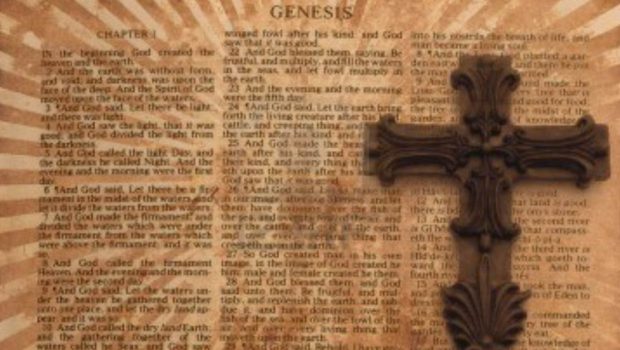Biblical Theology Part 4: Missio Dei and Missio Ecclesiae
In our three previous posts on Biblical theology we have surveyed the promise of God to Abraham in Genesis 12:1-3, noting it is the foundational text of Biblical theology. We have examined how this promise began to see fulfillment in the establishment of Israel, and the covenant with King David. Jesus Christ, the son of David, carried on this theme of the promise of God to bless all nations in His teaching on the Kingdom of God, and His inauguration of that Kingdom by His life, death, burial, and resurrection. Because sins are remitted through Christ alone, and all people are called to repentance, we are called to live in the Kingdom of God. Following the ascension of Christ into Heaven, the primary agent of the Kingdom is now the Spirit-empowered church.
The Mission Empowered
Jesus conquered sin and death. He rose victorious from the grave, and He sits at the right hand of God ruling the nations with a rod of iron (Psalm 2:8-9). The Lord’s people now fight for His cause as His reign is extended from Zion (Psalm 110:2-3). Our mission as the church, as the people of God following the life of Christ, is not fundamentally different in nature from God’s mission in the Old Testament or from Christ’s mission in His life and preaching. The intention has always been that all nations will be blessed, that all people will worship God on high, that the rule and reign of God will extend from Zion as the message of the Gospel of the Kingdom is preached by the power of the Holy Spirit.
The early chapters of Acts make this evident. At the beginning of Jesus’ ministry, every Gospel records some version of Jesus’ baptism (Matthew 3:13-17, Mark 1:9-11, Luke 3:21-22). John doesn’t actually record Jesus’ baptism per se, but he does record John the Baptist’s recollection of Jesus’ baptism in John 1:28-36. In all four instances, there is mention of the Spirit of God descending on Jesus. John 1:33 explicitly mentions this event as evidence that Jesus would be the One who would baptize with the Spirit.
Recognition that Jesus depended on the Spirit for His entire ministry must come to anyone who reads the Gospels (for instance, Matthew 4:1, Luke 4:14). Jesus’ incarnation itself was a work of the Holy Spirit (Matthew 1:18). Jesus ministry and preaching from start to finish was marked by the work of the Holy Spirit, and Jesus promised the Holy Spirit to His followers (John 7:37-39) in accordance with the testimony of John the Baptist in John 1. We cannot create a strict separation between the Person and work of Christ and the Person and work of the Holy Spirit. During Jesus’ earthly ministry His work was empowered by the Spirit’s work. When Jesus ascended, His work was to send the Holy Spirit to empower the work of the church.
The Mission Transferred
If we understand this, understanding the significance of Acts 1 and 2 becomes much easier. If the Spirit came on Jesus at His baptism and empowered Him for the ministry of proclaiming the Gospel of the Kingdom (along with the other works of Christ, but those are unique and unrepeatable, no need for any more crucifixions), then we must assume the Spirit comes on the church for the same purpose, to empower the people of God to proclaim the Gospel of the Kingdom.
This is exactly what we should expect given Matthew 28:18-20, Acts 1:8, and Acts 2 and its consequences. Jesus commands the disciples to go to all nations preaching the Gospel and teaching them to obey. Jesus tells the disciples they will be His witnesses to the very “ends of the earth” (Acts 1:8, HCSB). And it is so important that the disciples be filled with the Spirit as they do this that Jesus commands them to wait in Jerusalem until they receive the Holy Spirit (Acts 1:4-5). What we see here is the continuing fulfillment of the promise to Abraham through the Spirit empowered church.
Hence, when the Holy Spirit comes in Acts 2 the disciples are empowered to preach. It should not be seen as merely incidental that the first thing the apostles do upon receiving the Holy Spirit is preach a public sermon. Immediately thousands of people are added to the number of believers. With the coming of the Holy Spirit the mission of God, the mission of Christ, has become the mission of the Spirit-empowered church. Biblical Christians can admit no difference in kind between missio Dei and missio ecclesiae.
As further evidence, notice that there are basically five times in the book of Acts when people are filled with the Holy Spirit. The first is Acts 2, in Jerusalem. The second is Acts 8, in Samaria. The third is Acts 9:17, in the city of Damascus when Ananias visits Saul. The fourth is in Acts 10, at the house of Cornelius in Caesarea. The fifth is in Acts 19, in the city of Ephesus with 12 disciples of John the Baptist.
Notice what happens here. In the first three people groups filled with the Holy Spirit, we go from Jews, to Samaritans, to Gentiles. Geographically, we go from Jerusalem to Samaria to Damascus to Caesarea (the Roman capital of Judaea) to Ephesus. Geographically and ethnically, the trend is outward. In a very real sense, Acts 1:8 has been actualized. The Gospel has spread out from Jerusalem to begin reaching the very centers of the Roman and Gentile world (Ephesus was the Roman Empire’s second largest city).
The Mission Unfinished
The book of Acts ends with Paul in prison in Rome, but the situation is not one of despair. Instead we read, “Then he [Paul] stayed two whole years in his own rented house. And he welcomed all who visited him, proclaiming the kingdom of God and teaching the things concerning the Lord Jesus Christ with full boldness and without hindrance.” (Acts 28:30-31, HCSB). What began with the promise of the Spirit to empower the church to be Christ’s witnesses throughout the world ends with the Gospel of the Kingdom being proclaimed at the very heart of the Empire, the capital of Rome.
Yet the mission is still not finished. There are billions of people and thousands of people groups waiting to hear the Good News of the Kingdom of God. The Kingdom has been inaugurated, and it will be consummated some day. We know Christ will return, we do not know when. The mission of God is still the mission of the church, the Great Commission is still in effect, and we are still empowered by the Holy Spirit to do this work.
We are the church victorious, and we stand between Christ’s first and second comings. It is our sacred duty to act our part in fulfilling God’s promise-plan, so that on that day people of every nation and tongue will worship the Lord. God’s promises cannot fail, but we can fail to align ourselves with the realities of them. We know the truth, we must walk in it.
Soli Deo Gloria,
Josiah










